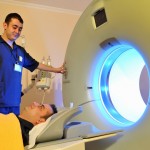
Ioana Cristea takes a closer look at a recent non-inferiority RCT, which compares mindfulness-based cognitive therapy (MBCT) plus discontinued antidepressants versus MBCT and maintenance antidepressants.
[read the full story...]
Ioana Cristea takes a closer look at a recent non-inferiority RCT, which compares mindfulness-based cognitive therapy (MBCT) plus discontinued antidepressants versus MBCT and maintenance antidepressants.
[read the full story...]
Sarah Knowles reviews a recent meta-analysis about the effects of blinding on the outcomes of psychotherapy and pharmacotherapy for adult depression.
[read the full story...]
Sarah McDonald considers the findings of the CoBalT RCT long-term follow-up, which finds that CBT plus antidepressants are clinically and cost effective for treatment-resistant depression in primary care.
[read the full story...]
Sarah Knowles summarises an individual patient data meta-analysis, which explores baseline depression severity as a moderator of depression outcomes between CBT and antidepressants.
[read the full story...]
Meg Fluharty reports on a new Cochrane review of interventions to improve return to work in depressed people. The review finds moderate quality evidence for a range of work-directed and clinical interventions that can help people with depression return to work.
[read the full story...]
Jennifer Laidlaw writes her debut blog on a recent RCT in JAMA about collaborative care for adolescent depression in primary care. The trial concludes that collaborative care is both feasible and effective in improving outcomes, but Jennifer highlights a number of limitations and questions for future research.
[read the full story...]
Helen Bould summarises a recent review that maps the evidence for the prevention and treatment of eating disorders in young people. Her conclusion? A call to arms for more better quality research to help people affected by these serious illnesses.
[read the full story...]Susie Johnson considers how effective conventional depression treatments are at reducing suicidal ideation in depression. The new study she summarises concludes that interpersonal therapy and antidepressants can also reduce suicidal ideation.
[read the full story...]
In addition to its impact on quality of life, panic disorder can have a number of costly consequences such as lost productivity – particularly if also associated with agoraphobia. Cost-effectiveness is therefore an important consideration in choosing the optimal treatment for panic disorder, which might improve value via the cost side of the equation. A recent [read the full story…]

A major challenge in the treatment of depression is that only a proportion of people respond to the first treatment they try. For example, with antidepressants only 40% of people will see their symptoms fall to a level that can be considered a recovery. Trying further treatments after the first one does not work can [read the full story…]